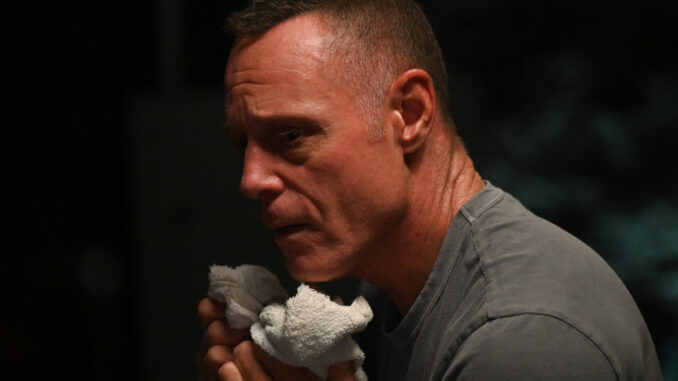
The Unbowed Oak: What Season 13 Means for Voight, Through Beghe and Sigan’s Gaze
There are characters in the sprawling tapestry of television that transcend the screen, burrowing into the collective consciousness not just as fictional constructs, but as archetypes. Hank Voight, the perpetually scowling, morally ambiguous, yet fiercely loyal sergeant of Chicago PD’s Intelligence Unit, is one such figure. He is a testament to the enduring appeal of the anti-hero, a man forged in the crucible of Chicago’s underbelly, whose compass points towards a justice uniquely his own. As the show prepares for its thirteenth season, the insights offered by Jason Beghe, the gravel-voiced vessel through whom Voight breathes, and Gwen Sigan, the architect of its narrative destiny, reveal not merely plot points, but a profound reckoning for the character – a journey into the soul of a warrior at the end of his long, blood-stained road.
Jason Beghe, who has inhabited Voight’s skin for over a decade, speaks with an almost spiritual understanding of the character. For him, Season 13 means a deepening of Voight’s internal battle, an intensification of the silent war waged within a man who has lost so much, yet continues to fight. Beghe’s revelations often hint at a man perpetually on the precipice, teetering between the cold pragmatism of survival and the raw grief that gnaws at his core. He suggests that Voight carries his past not as baggage, but as scar tissue, each loss – Justin, Erin, Al – a hardened layer protecting a fragile core. Season 13, through Beghe’s eyes, will force Voight to confront the cumulative weight of these scars. It’s the burden of every street-level compromise, every necessary evil, every whispered promise made to a ghost. It implies a narrative arc where Voight is less concerned with external threats and more with the erosion of his own humanity, questioning if the man he has become is still the man he set out to be, or if the darkness he’s wielded has finally begun to consume him from within. Beghe’s Voight, in Season 13, is a crumbling edifice, magnificent in its resilience, but showing profound cracks under the strain of time and trauma.
Gwen Sigan, from her vantage point as showrunner, offers a different, yet complementary, lens. Her vision for Season 13 casts Voight against the backdrop of an evolving, increasingly scrutinized world. The world outside the 21st District, the one she meticulously crafts and reflects in the show, has shifted seismically. Policing itself is under a microscope, demands for transparency are louder than ever, and the lines Voight has always blurred are now stark, unforgiving boundaries. Sigan’s revelations suggest that Season 13 will push Voight to grapple not just with his personal demons, but with the obsolescence of his methods. He is the old oak that refuses to bend in the face of prevailing winds, and Sigan’s narrative will test if his roots can withstand the storm, or if he will finally be uprooted. For Voight, this means a constant clash with authority, a confrontation with a younger generation of officers who don’t understand his “ends justify the means” philosophy, and perhaps, a forced adaptation that challenges his very identity. Sigan’s Season 13 is a societal mirror, reflecting how an unyielding figure like Voight navigates a system that no longer tolerates his brand of vigilante justice. Will he evolve, be broken, or finally find a definitive place outside the law he ostensibly serves?
The convergence of Beghe’s internal prophecy and Sigan’s external forces paints a stark and compelling picture for Voight in Season 13. It isn’t just another season; it’s a reckoning. The tightrope Voight has walked for so long, balancing justice with morality, loyalty with legality, is thinner than ever. Beghe sees the soul of the character at stake, a man weary but unbowed, facing the accumulated toll of his existence. Sigan sees the environment closing in, the world demanding a change that Voight might be fundamentally incapable of making.
Therefore, Season 13 means Voight will be pushed to his absolute limits. It will be a season where the ghosts of his past merge with the unforgiving realities of the present. Will he find a measure of redemption in a world that might no longer believe in it? Will he make a final, defining sacrifice, perhaps for his unit, or for the city he loves in his own brutal way? Or will he, finally, succumb to the pressure, breaking under the weight of his legacy and the changing tide of justice?
As the curtain prepares to rise on Season 13, Beghe and Sigan reveal that Voight’s journey is poised to be a dramatic exploration of survival—not just of the body, but of the soul—in a world that increasingly has no place for a man like him. He remains an unbowed oak, but the ground beneath him is shifting, and the question for Season 13 isn’t whether he’ll break the rules, but whether the rules themselves have irrevocably broken the world he inhabits. His story, guided by the profound insights of Beghe and Sigan, promises to be more than just a police procedural; it will be a parable for our times, an examination of resilience and resistance, and the ultimate fate of a lone wolf, standing at the edge of a new wilderness, deciding whether to howl or to finally fade into the night.
